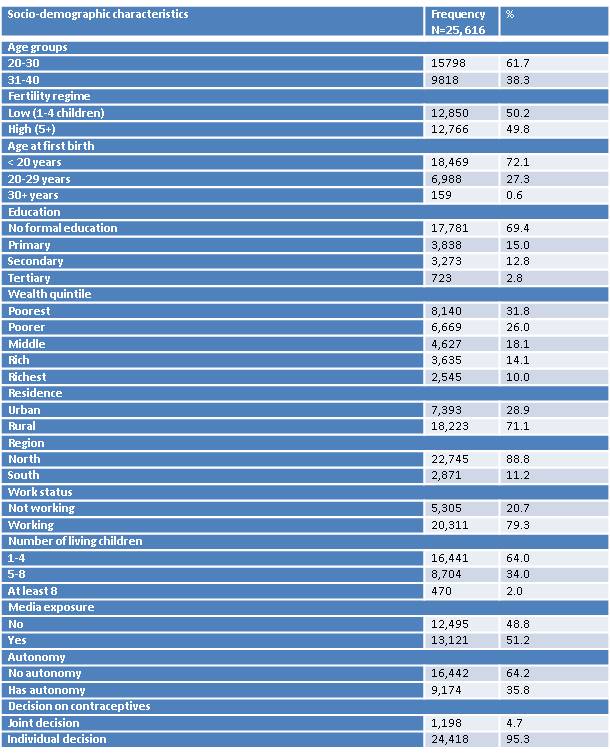Factors associated with differentials in modern contraceptive use among currently married women in Nigeria: Muslim North Versus Muslim South
REVIEW ARTICLE
Keywords:
Modern contraceptives, Religion, Region, Currently married, WomenAbstract
Introduction
Despite the federal government’s modern contraceptive prevalence (mCPR) target of 27% by 2020, mCPR remained abysmally low. Recent data from the most recent Multiple Indicator Cluster Survey revealed mCPR of 18.3%, although with significant differentials along region and religious affiliations. This study examined factors associated with modern contraceptive use among currently married Muslim women in Northern and Southern regions of Nigeria
Methods
The study analysed secondary data pooled from the three most recent successive Nigeria Demographic and Health Survey data sets (2008, 2013, and 2018). Analysis was restricted to currently married Muslim women aged 20–40 years, who have given birth to at least a child and have at least two living children as at the time of the survey and were not currently pregnant. The weighted sample size for the study was 22,653 women: (2018=8,605; 2013=7,830 and 2008=6,217). The outcome variable was modern contraceptive use, defined as whether a woman is using any modern contraceptives coded as 1, or not, coded 0. Binary logistic regression was performed.
Results
Significant regional differentials in mCPR persist. At the multivariate level, education, wealth index, occupation, autonomy, joint decision on contraceptive use and knowledge of methods were significant predictors of mCPR among northern Muslim women. Among southern Muslim women, age, autonomy, joint decision on contraceptive use and knowledge of methods were factors that significantly predicted mCPR.
Conclusion
Within homogenous religion, regional differentials accounts for differences in modern contraceptive use in Nigeria, thereby providing useful information for programmes and policy.



